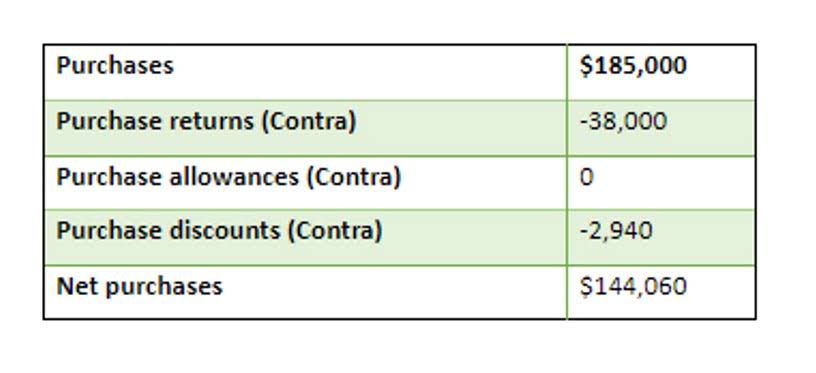Content
Persistence fosters a strong commitment to maintaining sobriety, empowering individuals to face challenges head-on and work steadily towards their recovery goals. Perseverance embodies the resilience needed to overcome obstacles and stay dedicated to the recovery journey, promoting continuous personal growth. Together, these qualities not only support individuals through difficult times but also significantly enhance the chances of long-term success and stability in recovery. For individuals recovering from addiction, establishing a supportive network is crucial. This network not only offers accountability and companionship but also helps navigate the complexities of early sobriety. This article explores various strategies and resources for building a sober support network, emphasizing the importance of social connections and structured environments to enhance recovery efforts.
How Long Does Meth Detox Take? A Recovery Guide
Then, design a relapse crisis plan and make note of your feelings throughout the process. The three pillars of sobriety are therapy, support, and education, which are crucial for overcoming the stigma of substance use disorder with empathy and understanding. In contrast, SMART Recovery utilizes a secular, cognitive-behavioral approach focused on self-empowerment and personal growth. Both can be an effective framework for maintaining abstinence from drugs and alcohol and can even be combined for a more comprehensive defense against relapse.
The impact of substance abuse on mental health
The key is staying open to new connections while nurturing the relationships that have supported you along the way. Cities across the country now host sober bars, alcohol-free dance parties, and recovery-friendly meetups. These spaces prove that you can have fun, make friends, and enjoy life without substances. They’re also great places to meet people who either don’t drink or who respect sobriety, making it easier to build a social circle that supports your recovery. There’s something incredibly powerful about connecting with people who’ve walked the same path you’re on. That’s why support groups like Alcoholics Anonymous (AA) or Narcotics Anonymous (NA) have helped millions of people worldwide.
Being part of a group can help you overcome obstacles, reducing feelings of loneliness, judgment, and isolation. Moreover, accountability structures in a sober community play a vital role in recovery. Regular check-ins with sober friends or sponsors provide the necessary encouragement to avoid Sober living house relapse. Shared experiences at support group meetings create a safe space for expressing feelings, validating each individual’s journey while inspiring one another to continue striving for sobriety. There are many support groups for addiction, such as narcotics anonymous for those experiencing drug abuse, or alcoholics anonymous (AA) for those who’ve struggled with alcohol addiction.
Navigating Relationships and Setting Boundaries
Discover how to support a baby born addicted to opioids and understand the impact of Neonatal Abstinence Syndrome. Discover why smoking alcohol is a new trend among college students and the dangers it poses to health. Discover what is the reversal of opiate activity, its mechanisms, effectiveness, and impact on opioid overdose deaths. Explore the tragic story of 70s show Lisa Robin Kelly’s death in rehab and her battle with addiction.
How Neuro Wellness Spa Can Help You Stay Sober
- Engaging in activities that bring joy, fulfillment, and a sense of accomplishment can help individuals stay focused on their recovery journey.
- Emotional support and guidance from your strong support system, which includes your sober support network, can prove invaluable in overcoming the hurdles that come with the recovery process.
- The journey to recovery is intricate, but with a robust network, it can become a journey of empowerment and hope.
- It can feel vulnerable to reach out and admit you need help and support, but that vulnerability is often the first step toward meaningful connections.
- It’s essential to maintain connections with supportive friends and family who encourage you and celebrate your achievements.
Or you might join a book club and connect with people over shared stories and discussions. The key is putting yourself out there and being open to new experiences that are both fun and healing. In today’s digital age, online recovery communities provide an invaluable resource. The first person to start with is most likely the closest person to you – your partner. Whether they’re going through the same thing as you and already considering a couples rehab in Florida, or they’re just a supportive presence, they’re always the first person on your team. Aside from them, there are family members, old friends who support your recovery, or even coworkers who’ve expressed concern and support, who will be there for you no matter what.
- In some instances, this might be as simple as helping with how to properly wash laundry, or in others as complex as helping with doing taxes.
- Personal growth in recovery involves setting achievable goals that steer your path towards sobriety.
- By nurturing existing supportive relationships and forming new connections with like-minded individuals, those in recovery can bolster their resilience and achieve lasting sobriety.
- Studies have demonstrated that peer support community programs led to significant reductions in relapse rates among addicts living in permanent supportive housing.
- By understanding the risk factors for relapse and implementing preventive measures, you can reduce the likelihood of returning to substance use.
- It’s important to have open and honest conversations, express remorse, and demonstrate changes in behavior.
This may involve distancing yourself from individuals who still engage in substance use or environments that may trigger cravings. Surrounding yourself with a supportive and understanding social circle can make a significant difference in your recovery journey. In addition to attending support groups, it’s important to actively seek out and maintain relationships with friends and family who are supportive and understanding. These individuals can provide emotional support, serve as accountability partners, and help create a sense of belonging in the recovery journey.
They can also help address any co-occurring mental health concerns that may be present 5. One effective way to connect with like-minded individuals is by attending recovery meetings. These meetings provide a safe and supportive environment where individuals can share their experiences, receive guidance, and establish meaningful connections.
Unlike informal support groups, group therapy sessions are usually facilitated by a licensed therapist who steers the conversation and ensures productive, respectful exchanges. This structured setting helps participants connect with others while gaining professional insights into their own behaviors. No matter where you are in your recovery journey, exercise and eating healthy is a great way to improve mental and physical wellness, boost your mood, and improve your quality of sleep 3 . By implementing exercise and intuitive eating as part of your daily routine, you’ll create a healthy distraction and outlet for stress. For example, you may have adopted coping strategies for loneliness during detox, but now you need new coping mechanisms for your high-functioning anxiety. The flexibility this offers is great, but understanding that you should reassess your coping skills every so often will be beneficial to your sobriety journey.











